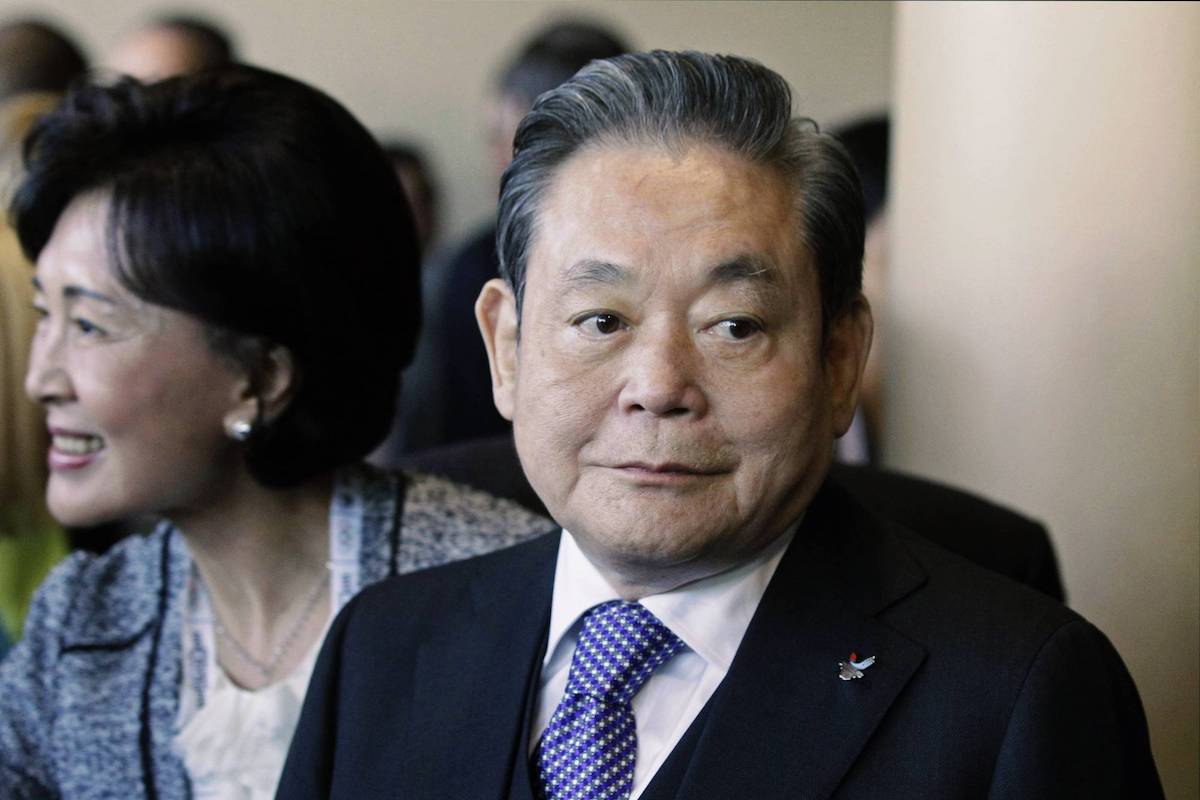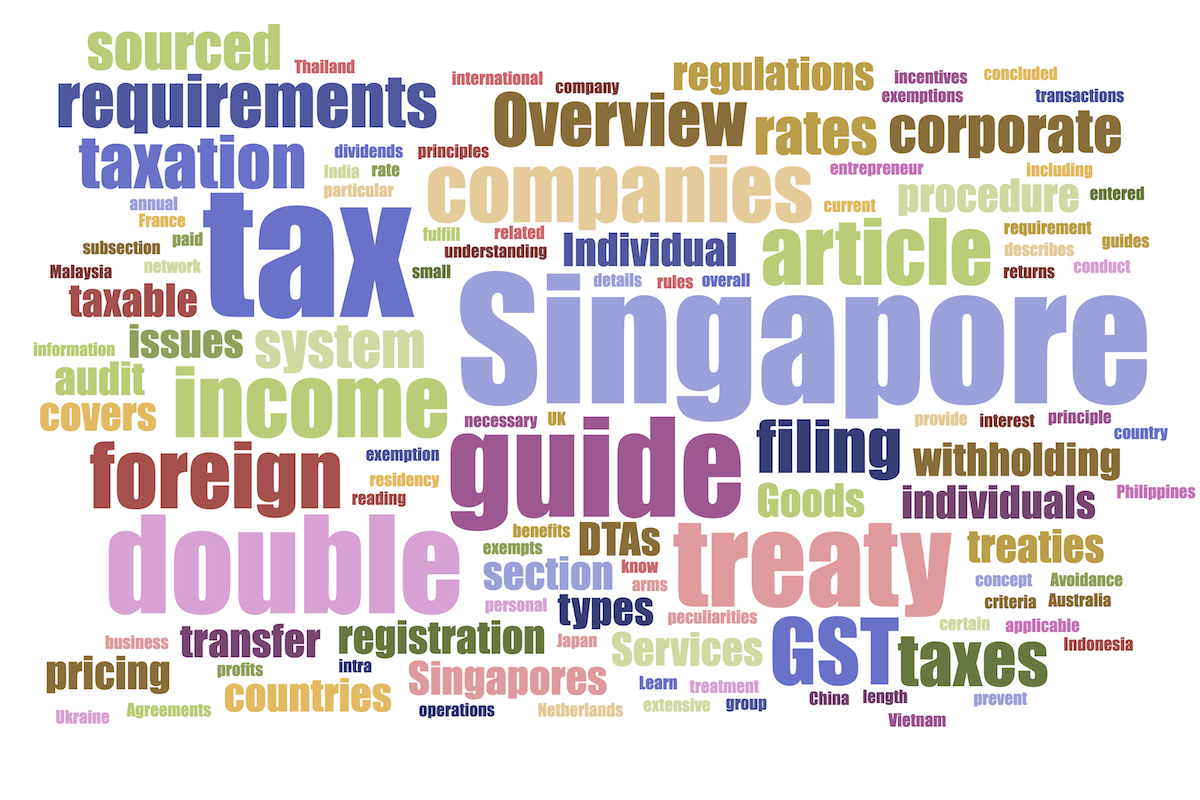Launching a Startup in the UK vs Singapore
Introduction
The UK has a long history of international trade, welcoming more foreign investors than any other country in Europe. The UK will continue to be a gateway to many European jurisdictions, and remain a key location for expansion. With its strong financial pedigree, the UK remains one of the world’s major financial centers and the main financial hub of Europe. Despite the recent economic and political changes resulting from Brexit, a vast number of overseas investors and entrepreneurs continue to choose the UK as an attractive investment destination in Europe.
Singapore is one of the world's smallest countries, one that was once under British rule. Despite the comparatively small local market and economy, Singapore has achieved astonishing growth since gaining independence in 1965; and by the 1990s, the country’s GDP per capita reached a level similar to that of many OECD countries. Within just a generation, the country has effectively transitioned from a third-world country to one of the most desirable destinations for business expansion in the world. Today Singapore is one of the world's top innovation, financial, and technological hubs with an attractive tax system and business-friendly policies.
When deciding which is the best place for launching your startup — Singapore or the UK — you will need to consider several distinctive factors in each jurisdiction. Below we’ll compare and evaluate Singapore's attractiveness vs the UK for launching a startup.
Have Questions?
Tell us your needs and we will get in touch with you promptly.
Business Environment
The United Kingdom is one of the best places to do business in Europe. Its free market and diverse economy have long provided a solid foundation for foreign investors and entrepreneurs. The UK’s government creates a friendly climate for foreign investments, which are crucial to the growth of the UK economy. The UK is a top financial center in Europe, with London as a leading destination for international investors.
Since the UK's exit from the EU in January 2020, challenges such as limited commerce, uncertainty about economic integration, more customs procedures, workforce immigration limitations, foreign investments, and worsening labor shortages have begun to arise. These are just a few immediate consequences of Brexit for the UK; the true impact, however, is yet to be determined.
While the UK is the financial and business center of Europe, Singapore is a gateway to Southeast Asia. Entrepreneurs from all over the world a establish their regional headquarters in Singapore to expand their reach to Asian markets. According to the World Bank's Ease of Doing Business 2019 rankings, Singapore has second place in global ranking, while the UK was ranked 8th. Singapore has also become an attractive location for entrepreneurs and investors from the UK. Around 3,000 British companies have located their base or moved business operations to Singapore. Many well-known companies such as Dyson, GSK, Shell, and Standard Chartered have established offices in Singapore.
Compared to the UK, Singapore’s business environment is strongly backed by political stability and pro-business policies. To enhance economic prosperity, Singapore has invested in the development of the country’s financial, trade, and technological sectors. The government is also actively investing in the research and development sector. Singapore has a highly skilled, multilingual workforce, with a significant majority of English speakers. Singapore also continues to welcome foreign professionals via various immigration schemes. The UK also has a great talent pool, but its minimum wage laws significantly drive up business costs.
Country Snapshot
Singapore | United Kingdom | |
Population | 5.7 million | 67.2 million |
Territory | 724.2 sq km | 242.5k sq km |
GDP | 394.3 billion | 3.5 trillion |
Unemployment Rate | 2.4% | 4.1% |
FDI inflow | 142 billion | 70.95 billion |
GDP per capita | US$84,734 | US$54,066 |
Government Support Programs
Both countries offer a vast number of government support programs available at the local, regional, and national level. Depending on company size, type of project investment, project location, and number of jobs created, eligible medium-sized organizations, as well as newly incorporated startups in the UK, can apply for about 156 financial support schemes. The UK provides government grants in various forms, including cash payments, reduced government fees, free equipment, equity finance, soft loans, and others. These programs can cover capital investment, job creation, research and development, training, and infrastructure development. The most commonly used grant in the UK is a direct grant provided to startups to cover the initial essential costs to launch a business. With the Research and Development Expenditure programme, small and medium-sized companies (SMEs) are able to apply for a tax deduction on qualifying expenditures. The Innovate UK Scheme provides a mechanism for funding research and development activities in amounts between GBP 25,000 and GBP 10 million.
The two main sources of support funding for businesses in the UK are the UK Government and the EU. However, in view of the UK’s recent exit from the EU, future participation in EU projects is uncertain. Compared to the UK, Singapore has already implemented more than 75 national sector-specific incentives and support schemes.
The Singapore government makes extensive efforts to boost the development of tech startups and incubators and to attract foreign investors to the country. Singapore offers support via cash grants, reduced tax rates and other tax-related benefits, equity financing, and non-monetary benefits. For instance, newly launched startups can receive benefits ranging from a S$6 million grant to a tax allowance of up to S$10 million. One of the most commonly utilized government programs is the Tax Exemption Scheme for New Start-Up Companies. Eligible startups receive a tax exemption of 75% on the first S$100,000 of chargeable income and a tax exemption of 50% on the next S$100,000 of chargeable income, for the first three years.
Singapore's focus on the adoption of smart technologies and developing an innovation-powered economy has been relentless. Singapore is among the top-ranked countries in Asia in the adoption of AI. Some of these support programs are designed for companies with special attributes that operate in specific industries. While the UK is more focused on trade and finance industries, each Singapore incentive program is carefully designed to encourage innovation in different sectors of the Singapore economy.
Regulatory Regime
Singapore’s commitment to becoming the most technologically advanced nation in the world touches every sector of government regulations, from education to urban development. Singapore's government is convinced that a transformative regulatory regime is an important key to the country’s technological growth. Implementing business-oriented regulations supports the development of new tech sectors. A fairly strict, efficient, and transparent judicial system promotes a safe and efficient environment for businesses to grow and flourish. Singapore implements various supportive regulations to encourage early businesses and provide a space for experimentation, research, and innovation. Singapore ranked first in Regulatory Environment in the 2021 WIPO Global Innovation Index Report, while the UK has ranked 9th.
The UK market is also rather open for business opportunities; there have been no exchange or capital controls in the UK since their abolition in the 1970s, as well as no foreign investment restrictions. No distinction is made in the UK between domestic and foreign investments. Domestic and foreign investors are subject to the same regulations contained in the 2002 Enterprise Act.
The UK and Singapore judicial systems are two of the most transparent and corruption-free in the world. According to the 2021 Corruption Perceptions Index, which monitors corruption in public sectors, the UK is ranked 11th among 180 countries, and Singapore holds 4th place in this ranking. However, the UK law system is quite complex, as the UK comprises four countries and three separate legal jurisdictions: England and Wales, Northern Ireland (both based on common law), and Scotland (based on a mixture of uncodified civil law and common law). Singapore's legal framework, on the other hand, is very straightforward and easy-to-understand for foreign entrepreneurs, which makes it an attractive destination for launching a startup.
Taxation
The UK has a rather complex tax system, with progressive tax rates applicable on higher bands of income. Singapore companies enjoy a headline corporate tax rate of 17% on their chargeable income. Plus, according to the 2021 UK Finance Act, along with the introduction of generous innovation incentives to encourage capital investments, the UK is increasing the corporation tax to combat the financial impact of the COVID crisis and create a path to recovery from the pandemic. According to the 2021 International Tax Competitiveness Index, which evaluates the extent to which countries adhere to competitiveness and neutrality, the UK ranks 22nd among 37 OECD (Organization for Economic Co-operation and Development) countries.
Singapore, on the other hand, is commonly viewed as an attractive tax jurisdiction, thanks to its low tax rates, numerous exemptions, and government-provided tax incentives. Singapore has a one-tier territorial tax system where Singapore resident companies pay taxes on profits only, with no tax on post-tax profit distribution. For instance, if tax was withheld on a corporate level, no tax will be imposed when income is distributed to individuals. Moreover, there is no tax on capital gains, dividends, or inheritance, and certain types of foreign-source income are also exempted from taxation in Singapore. Singapore also has a wide network of tax agreements with other countries (including the UK-Singapore DTA), which makes it possible to avoid double taxation on certain income by applying double tax treaty rules.
Under UK tax law, a company is treated as a UK resident if it is established in the UK or managed and controlled in the UK. Singapore tax law treats a company as a tax resident if it is directly controlled and managed from Singapore. As for individuals, they are considered Singapore tax residents if they are Singapore citizens, Singapore permanent residents, or foreigners who spent 183 days or more present in Singapore during the tax year. The same rule is applicable under the UK tax regime.
A UK resident company is liable to corporate tax on its worldwide profits, chargeable gains, and all profits arising from trade carried on through UK permanent establishments. Non-resident companies are taxed in the UK if they receive trading income arising through a permanent establishment in the UK. In Singapore, only income that is generated in Singapore and income that is remitted to the country from a foreign source is deemed to be taxable. Singapore's tax regime is straightforward and more favorable for foreign businesses than that in the UK, as tax rates are comparatively lower than in the UK.
Tax Rates
Type of taxes | Tax rates in the UK | Tax rates in Singapore |
Corporate income tax | 25% | 17% |
Personal income tax | 20-45% | 0-24% |
GST | 20% | 9% |
Capital gains tax | 18-28% | 0% |
Dividend tax | 7.5-38.1% | 0% |
Interest tax | 20% | 15% |
Royalty tax | 20% | 10% |
Inheritance tax | 40% | 0% |
Trade
The UK has long been a key player in global trade. The UK imports a lot of goods to facilitate trade, such as FMCGs (Fast Moving Consumer Goods), and exports industrial machinery, motor vehicle parts, pharmaceuticals, etc. The UK is ranked as the fifth-highest exporter in the world, with top exported products including cars, gas turbines, gold, medicines, hard liquor, antiques, and crude petroleum. Even though the UK has no significant trade or investment barriers and no restrictions on the transfer of capital or repatriation of profits, some industries are heavily regulated, including the financial services sector. Import licenses or certificates are needed for a broad range of goods. Additionally, the impact of the Brexit decision on some trade arrangements agreed with the EU is still uncertain.
Singapore is a small nation with very few natural resources but is deeply plugged into the global economy. Singapore is a trade-focused country with efficient trade regulations that offer exemption from customs duties and permit requirements for goods that are imported and stored in Free Trade Zones (FTZs). Singapore continues to make significant efforts to improve its economic integration by strengthening cross-border trade relationships. Currently, Singapore has more than 25 bilateral and regional free trade agreements that give Singapore-based businesses access to preferential markets, reduced import tariffs, and other benefits. The ASEAN Economic Community, Trans-Pacific Partnership Agreement, Regional Comprehensive Economic Partnership Agreements are examples of major draws for Singapore’s development.
There are strong economic ties between these countries, as the UK is Singapore’s largest investor and trading partner in Europe. Singapore is one of many countries that have committed to maintaining the same relations with the UK as before Brexit, particularly those aimed at increasing access to respective services and government procurement markets, reducing non-tariff barriers, and tariff elimination for goods trade. The UK-Singapore Free Trade Agreement was signed in 2020. In February 2022, Singapore and the UK signed the Digital Economy Agreement, which is aimed at advancing end-to-end digital trade through common digital systems and encouraging digital economy participation by SMEs.
Even though Singapore has a rather small market, its economy is one of the most stable and open in the world. According to the 2020 World Bank’s Report, Singapore has the second highest GDP per capita in the world, in terms of purchasing power parity. According to the 2022 Index of Economic Freedom, which ranks about 180 economies around the world, Singapore has the world’s freest economy, while the UK ranks 24th on the list.
If you are interested in establishing your operations in Singapore’s FTZs and require assistance in obtaining the relevant permit or license, or are thinking of launching a new startup, our team will be glad to assist you.
Investment Environment
The UK is well known as a place to which venture capitalists and entrepreneurs from all around the world flock to establish their new companies and invest. The UK has a highly diversified economy, robust financial climate, and solid treaties to assure investors are well protected and to promote and diversify foreign investments in the country. Despite Brexit’s impact on the investment environment, London continues to be a top destination for venture capitalists in Europe. The UK’s primary source of foreign investment is the US, however, during recent years, the UK has also observed increasing levels of investment from China and Japan. The UK has implemented various inward investment projects to facilitate the investment flow in sectors such as software, life sciences, engineering, environment technology, business, and financial services.
Singapore, on the other hand, is a rising investment hub that became an Asian Silicon Valley. As per the 2019 Statista Report, estimated foreign direct investments constitute about US$114.1 billion. Global investors’ allocations to Singapore have been rising, as the country offers significant opportunities for anyone looking to invest in a growing market in Southeast Asia. Singapore has become a favorite destination for investors seeking the next unicorns. The thriving startup environment in Singapore has drawn the interest of venture capitalists and private investors from around the world. According to the 2021 WIPO Global Innovation Index Report, Singapore scored first in the investment rankings, while the UK was ranked 5th.
The government of Singapore implemented various incentive programs and special tax treatment to attract business owners and venture capitalists. As reported by the Monetary Authority of Singapore, foreign investors’ assets grew by over 50% in 2021, despite the COVID-19 pandemic, showing the sustainability of the startup ecosystem. The industries with the best prospects for investing in Singapore are:
- Advanced manufacturing. Singapore has established a 10-year plan to grow the manufacturing sector by 50% by 2030.
- Pharmaceutical and biomedical industries. The country is one of the few that export more pharmaceutical products (US$8.9 billion in 2020) than they import. The largest pharmaceutical firms, like Pfizer, GlaxoSmithKline, Novartis, and Abbottin, have established manufacturing centers in Singapore.
- Medical devices. Singapore is the main manufacturing base for medical devices for global markets. The Asian market will most likely overtake Europe as the second-largest regional market for medical devices by 2023.
- Electronics. This sector accounts for about 8% of the country's GDP. Singapore also is an important part of the worldwide supply chain for microelectromechanical systems and memory goods.
Data and Intellectual Property Protection
The UK offers a well-developed regime for protecting and monetizing intellectual property rights (IPRs), as well as competitive enforcement mechanisms. The UK is a party to multiple international treaties, which allow the UK to protect intellectual property in other signatory countries. However, after Brexit, EU-wide rights no longer give protection in the UK and the position of registering any IPRs has changed, as the UK is not a part of any relevant EU regime.
Compared to the UK, Singapore has a stronger regulatory regime for protection of intellectual property. As per the 2021 International Property Rights Index, Singapore ranks second for protection of IPRs. In contrast, the UK has ranked 15th. Despite the country’s relatively late entrance into the IP ecosystem, Singapore has managed to supersede other economies. With Singapore’s business-oriented approach, the country has become an advantageous destination for many global companies seeking a strong and agile regime for protection of IPRs.
The UK has quite specific data protection laws. The collection and use of personal data for business purposes (i.e. details relating to individuals, such as customers, consumers, or employees) are governed by the Data Protection Act, which the UK adopted following its departure from the EU. This law mirrors the EU regulations and implements rules of the General Data Protection Regulation into domestic law, with the possibility that the UK will keep the framework under review. This means the regulation of personal data did not change dramatically in the UK post-Brexit, though some organizations which transfer data from the UK to the EU may be still affected. Currently, personal data is permitted to flow freely in both directions. However, it remains to be seen whether the EU countries will offer reciprocal terms to the UK.
Singapore in comparison has one of the most strong and comprehensive data protection laws, balancing tech innovation with data privacy rights. Singapore’s Personal Data Protection Act (PDPA) is the main law governing the use, transfer, collection, and disclosure of personal data by Singapore companies. All Singapore-registered companies are required to comply with the PDPA rules. At the same time, if your Singapore company processes the data of EU clients, you should also comply with the GDPR requirements. To learn more about the data protection rules and requirements for your Singapore company, refer to our comprehensive guide on GDPR compliance.
Infrastructure and Connectivity
Both Singapore and the UK seem attractive when it comes to infrastructure. The UK has excellent transport links with Europe and the rest of the world. Singapore is well connected to the world’s major markets and strategically placed along the world’s major aviation routes. Also, both countries have strong financial infrastructures, with a strong ecosystem of banks, insurers, lawyers, and other specialists.
Both countries have sophisticated and modern public transport systems that may eliminate the need to own a car. Singapore’s physical infrastructure, such as rail, road, airport and seaport, are top-notch, and the country continues to invest in upgrading its infrastructure and digital connectivity. Singapore’s Changi Airport is constantly ranked as the world’s best airport, with over 62 million passengers passing through each year, flying to about 100 countries globally. Singapore’s port is the busiest container transshipment hub and the largest publicly owned port in the world, offering connectivity to more than 600 ports in 123 countries.
Since the UK is a much larger country, its infrastructure system is larger than Singapore’s. The UK also has the largest transport system in Europe and the second-largest ports industry in Europe, with more than 70 airports, 100 ports, the fourth-largest rail network in Europe, and toll-free motorways. The UK enjoys a modern, privatized rail network linking major cities to mainland Europe. Most of Europe’s leading markets are reachable in 2 hours from any of south England’s international airports.
Singapore is consistently ranked as having one of the best overall infrastructures in the world. Singapore delivers outstanding digital connectivity and has a great technological infrastructure, with the fastest Internet in the region and the highest mobile penetration rate in Asia, which is an essential driver of technology, innovation, and business dynamism. Singapore also implemented 5G networks in 2020, with 5G coverage expected to extend across at least half of Singapore by the end of 2022.
According to the 2020 Huawei’s Global Connectivity Index, which measures digital progress in about 80 countries, covering supply, demand, experience, data centers, cloud, big data, and IoT, Singapore was ranked second in terms of technological readiness, while the UK was ranked 8th.
Quality of Life
When it comes to overall living environment, Singapore is highly rated for its standard of living and quality of life. Singapore is one of the most desired relocation destinations among expatriates, as it has a clean and green environment, outstanding working and education conditions, a low crime rate, colorful cultural diversity, and racial harmony. All these factors, along with Singapore’s cosmopolitan lifestyle, make the country a top draw for world-class talent and a great place to live and work. Singapore is ranked as the third safest city in the world, according to the Safe Cities Index 2021, while London is 15th.
The UK also has high living standards, social engagement, and personal security rates and ranks as a top place to live in Europe when it comes to work-life balance and wealth. However, it did not do so well when it comes to education or the overall satisfaction of the UK citizens with their own lives. According to the Mercer Quality of Living City Rankings 2019, Singapore was ranked as the best place to live in Asia, while London held 41st place in the global ranking. HSBC’s 2021 Expat Explorer Report, which measures various destinations for expat living, aspirations, and future outlook, Singapore was ranked 9th, while the UK was ranked 44th on the list of 46 countries.
Conclusions
Despite being a small nation, Singapore has consistently outperformed other countries in international rankings that assess global competitiveness and business appeal. With a skilled talent pool, strong government support, and advanced infrastructure, it remains an attractive destination for those looking to setup a company in Singapore while tapping into a thriving innovation ecosystem.
By launching your startup in Singapore, you can benefit from Singapore’s extensive free trade agreement network, Singapore’s FTZs, government support programs, enhanced intellectual property regulations, as well as a low-rate tax system. Moreover, to incorporate a business in Singapore, you don’t need to deal with a long bureaucratic registration process, as your company can be incorporated in just a few days even without your physical presence in the country.

"Guys, your professionalism and highly relevant advice helped our incorporation in a timely manner. With your online CSP system, it is so easy to collaborate with your team and get immediate status updates in near real-time. Without your assistance and support, we wouldn’t have managed the whole process so flawlessly. I have already encouraged my fellow entrepreneur to engage your services and will undoubtedly do it again!"Terrie Lloyd, Director, TourSoft International Pte. Ltd
You are also welcome to read our comparison article about Singapore vs. Dubai and Singapore vs. Malaysia.
If you are interested in launching your startup in Singapore and would like to access its attractive business incentives, just contact our team for support and we will be glad to assist.



